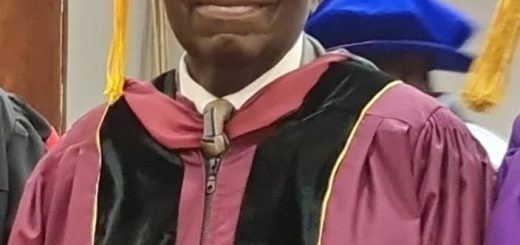“Nobody eats GDP” says African Development Bank President as he calls for inclusive growth
Notice: Undefined index: catFilterList in /home/zambi/public_html/wp-content/plugins/wp-likes/api.php on line 243
The 2020 African Economic Outlook (AEO) showed that the continent’s economies are growing well
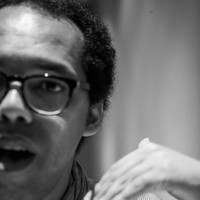
Gershwin Wanneburg
Communication and External Relations Department
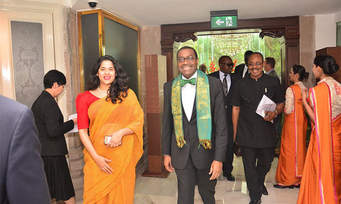
Akinwumi Adesina, President, African Development Bank
Media Contact:
Gershwin Wanneburg
Communication and External Relations Department
African Development Bank
Email: g.wanneburg@afdb.org
ABIDJAN, Ivory Coast, February 3, 2020/ — Africa’s economies are growing strongly, but growth alone cannot meet the needs of the continent’s poorest citizens, because “nobody eats GDP,” the African Development Bank’s (AfDB.org) President, Akinwumi Adesina, said as he unveiled the Bank’s flagship economic report on Thursday.
The 2020 African Economic Outlook (AEO) (http://bit.ly/2vABQFU) showed that the continent’s economies are growing well, higher than the global average. The report projected a steady rise in growth in Africa from 3.4% in 2019 to 3.9% in 2020 and 4.1% in 2021.
According to the report, these figures do not tell the whole story. Across the continent, the poor are not seeing enough of the benefits of robust growth. Relatively few African countries posted significant declines in extreme poverty and inequality, which remain higher than in other regions of the world.
Inclusive growth occurred in only 18 of 48 African countries with data, the report revealed.
According to Adesina “Growth must be visible. Growth must be equitable. Growth must be felt in the lives of people.”
The theme of the 2020 Africa Economic Outlook report, Developing Africa’s workforce for the future, calls for swift action to address human capital development in African countries, where inclusive growth has been held back by a mismatch between young workers’ skills and the needs of employers.
The Bank’s flagship report states that increased investments in education is key as well as progressive universalism in education spending—setting high priorities for the poor and disadvantaged and focusing on basic education first where social returns are highest. Its recommendations include improving access to education in remote areas, incentives such as free uniforms and text books, banning child labour and improving teaching standards.
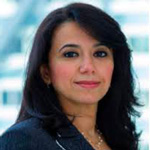
Hanan Morsy, Director of the Macroeconomic Policy, Forecasting and Research Department at the Bank
To better match skills with job opportunities, the report recommends that governments need to develop a demand-driven education system in tune with rapidly emerging jobs in the private sector, including software engineers, marketing specialists and data analysts, the report says.
“Africa is blessed with resources, but its future lies in its people…education is the great equaliser. Only by developing our workforce will we make a dent in poverty, close the income gap between rich and poor, and adopt new technologies to create jobs in knowledge-intensive sectors,” said Hanan Morsy, Director of the Macroeconomic Policy, Forecasting and Research Department at the Bank.
Dr. Hanan Morsy, Director of the Macroeconomic Policy, Forecasting and Research Department, African Development Bank

Dr. Hanan Morsy is the Director of the Macroeconomic Policy, Forecasting and Research Department at the African Development Bank, Abidjan, Cote d’Ivoire. She is a renowned macroeconomics and public policy expert with vast experience in international financial institutions and the private sector. She has published extensively on wide range of economic and development issues and led a number of major flagship publications.
Dr. Morsy worked previously as the Lead Economist for the Southern and Eastern Mediterranean Region at The European Bank for Reconstruction and Development in London between 2012 and 2017.
Prior to joining The European Bank for Reconstruction and Development, she worked at the International Monetary Fund between 2003 and 2012 in various capacities across different departments including, Fiscal Affairs, Middle East and Central Asia, European, and Monetary and Capital Markets as well as Advisor to Executive Director.
Dr. Morsy is a Board of Trustee Member at the London Middle East Institute and a Research Fellow at the Economic Research Forum.
She holds a Ph.D. in Economics from the George Washington University, USA, a Master’s degree in Economics from University of California, Davis, USA, and a Bachelor’s degree in Economics and Computer Science from the American University in Cairo, Egypt.
All Speakers
Hon. Peter Spencer Bemah, Deputy Minister for Technical and Vocational Education and Training, Ministry of Youth and Sports, Republic of Liberia

Honorable Peter S. Bemah is the Deputy Minister for Technical and Vocational Education and Training, Ministry of Youth and Sports, Republic of Liberia. In his role, Hon. Bemah is managing skills training to enhance employability and entrepreneurship for youths in the West African nation of Liberia.
Honorable Bemah has served in many other youth driven, government and non-government related positions in his country, some of which are: Legislative Research Analyst, the Honorable Liberian Senate; Director of Programs, Liberia National Youth Congress; First Deputy Speaker, Mano River Union Youth Parliament; and Human Resource Director, Trinity Computer Solutions.
Prior to his appointment by His Excellency President George Manneh Weah in 2018, Hon. Bemah served as Compliance Specialist for SPIN, Inc. in Northeast Philadelphia, Pennsylvania; where he helped managed the company’s Compliance Department and ensured that that the company and its employees strictly adhered to all relevant provisions, regulations and standards governing Healthcare Administration in the state of Pennsylvania.
Hon. Peter S. Bemah holds a Master of Legal Studies (MLS) degree in Corporate Compliance from Drexel University, USA; and a Bachelor of Public Administration (BPA) degree in Public Administration from A. M. E. Zion University, Liberia. He also holds several other professional certifications.
Hon. Bemah is married with 2 children.

Ms. Dewunmi Alugbin, Head Partnerships, Tony Elumelu Foundation, Nigeria
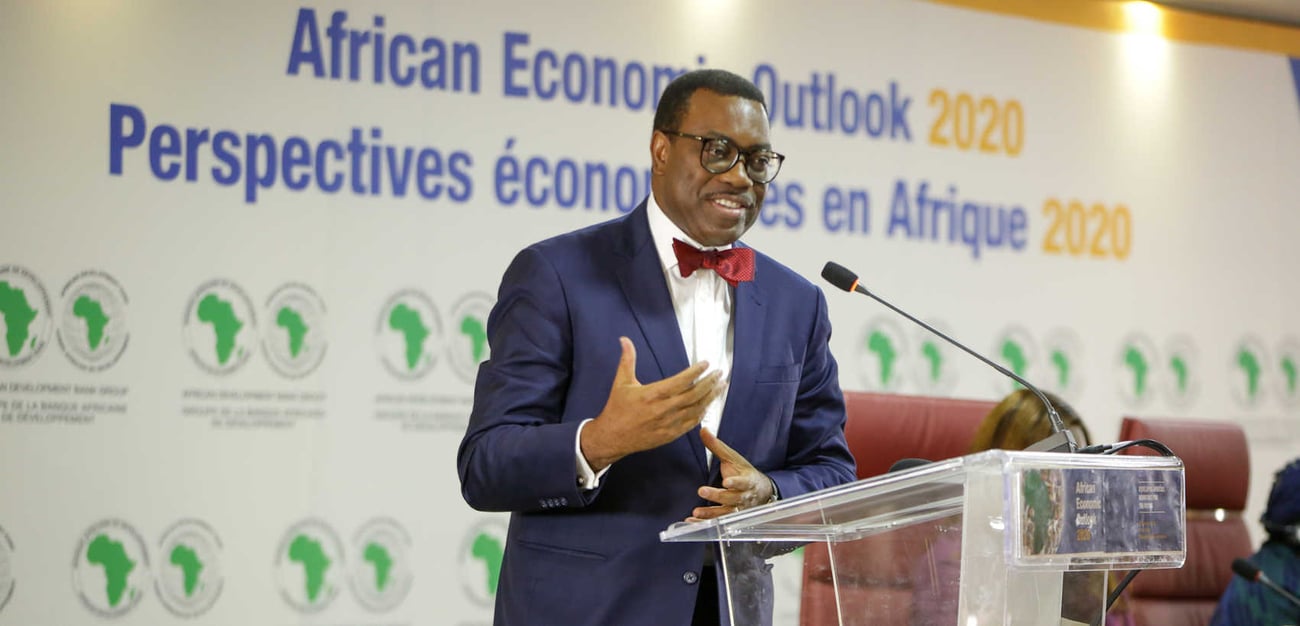
Africa’s economies are growing strongly, but growth alone cannot meet the needs of the continent’s poorest citizens, because “nobody eats GDP,” the African Development Bank’s President, Akinwumi Adesina, said as he unveiled the Bank’s flagship economic report on Thursday.
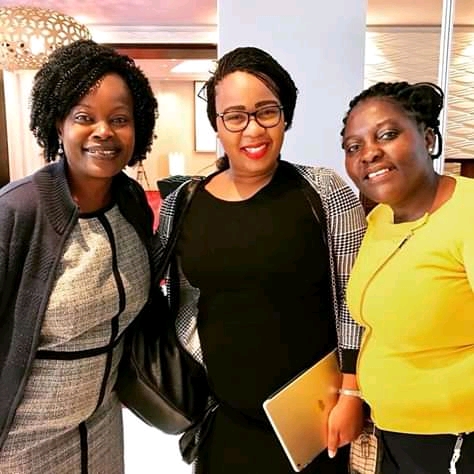
People: Kalomo Grain Marketing Ltd and Savanna Premium Chocolate at 1st AWAN _africa Continental Conference and #VALUE4HER B3B Fair in Nairobi, Kenya
The 2020 African Economic Outlook (AEO) showed that the continent’s economies are growing well, higher than the global average. The report projected a steady rise in growth in Africa from 3.4% in 2019 to 3.9% in 2020 and 4.1% in 2021.
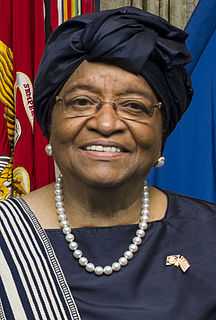
Ellen Johnson Sirleaf is a Liberian politician who served as the 24th President of Liberia from 2006 to 2018. Sirleaf was the first elected female head of state in Africa. Wikipedia
According to the report, these figures do not tell the whole story. Across the continent, the poor are not seeing enough of the benefits of robust growth. Relatively few African countries posted significant declines in extreme poverty and inequality, which remain higher than in other regions of the world.

Akinwumi Adesina, President, African Development Bank
Inclusive growth occurred in only 18 of 48 African countries with data, the report revealed.
According to Adesina “Growth must be visible. Growth must be equitable. Growth must be felt in the lives of people.”
The theme of the 2020 Africa Economic Outlook report, Developing Africa’s workforce for the future, calls for swift action to address human capital development in African countries, where inclusive growth has been held back by a mismatch between young workers’ skills and the needs of employers.
The Bank’s flagship report states that increased investments in education is key as well as progressive universalism in education spending—setting high priorities for the poor and disadvantaged and focusing on basic education first where social returns are highest. Its recommendations include improving access to education in remote areas, incentives such as free uniforms and text books, banning child labour and improving teaching standards.
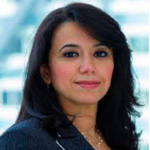
Hanan Morsy, Director of the Macroeconomic Policy, Forecasting and Research Department at the Bank

Gershwin Wanneburg
Communication and External Relations Department
To better match skills with job opportunities, the report recommends that governments need to develop a demand-driven education system in tune with rapidly emerging jobs in the private sector, including software engineers, marketing specialists and data analysts, the report says.
“Africa is blessed with resources, but its future lies in its people…education is the great equaliser. Only by developing our workforce will we make a dent in poverty, close the income gap between rich and poor, and adopt new technologies to create jobs in knowledge-intensive sectors,” said Hanan Morsy, Director of the Macroeconomic Policy, Forecasting and Research Department at the Bank.




















































